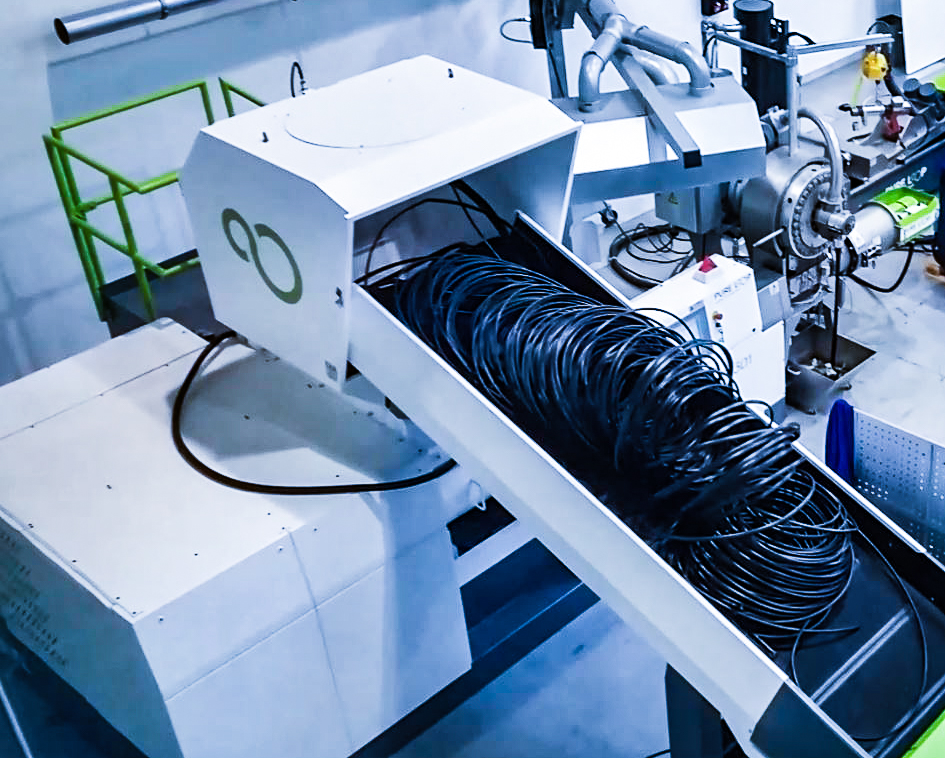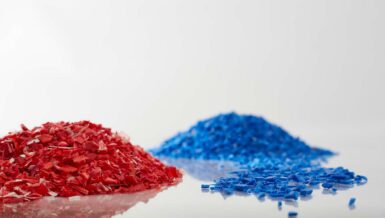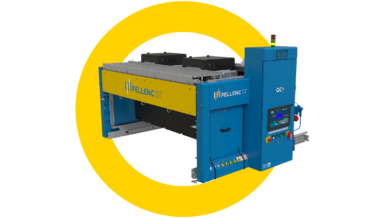This category includes drip tapes and irrigation pipes that accumulate as waste during the production of irrigation systems or are rejected during quality inspection. Manufacturers who already implement this technology reuse production waste in the form of recycled pellets in proportions of up to 20 percent – without any loss of quality compared to production from virgin material.
Ansfelden, 11 March – “This level of reuse can still be significantly increased thanks to the high quality of the recycled pellets,” says Manfred Dobersberger, Managing Director of PURE LOOP. “The high demands on the recycling process result from the high volume of the bulky input material as well as the material composition of the drip tapes and irrigation pipes,” he explains. Their job is to ensure that crops can grow and thrive, using as little water, fertilizer and pesticides as possible. For this purpose, either thin-walled HDPE drip tapes laid on the surface or HDPE irrigation pipes buried in the ground are used. The water is distributed through emitters. In the case of the thin-walled drip tapes (150 – 250 µm), these are LLDPE injection-molded parts which are spaced at regular intervals of around 20 cm. In the case of thick-walled irrigation tubes (over 300 µm), the emitters are also fitted with a silicone membrane for pressure compensation, so that the same flow rate of water is discharged from each emitter over the entire length of the tube and the flow of water is not obstructed by soil, sand or roots growing into the emitter.
Efficient shredder-extruder combination for gentle processing
The purpose-specific function of the pipes and tapes is tested at regular intervals during the production process. “In order to test whether their irrigation pipes meet the strict quality standards of a maximum of two pinholes per 10 kilometers, one of our customers pressure-tests them with water,” reports Manfred Dobesberger. “The proportion of foreign polymers in this material is a real challenge in recycling, but one that our ISEC evo shredder-extruder combination with double degassing and EREMA laser filter can handle with perfectly”. In the laser filter, three scrapers rapidly and continuously remove contaminants – which mainly consist of the silicone in the emitters – from the filter screen during each revolution. The efficiency of this filter enables high throughput rates in the recycling process and the highest recycled pellet quality. Further advantages for the user are that, as an all-rounder, the recycling machine processes bulky hose bundles as well as other production waste such as start-up lumps and regrind material or complete rolls with drip tapes. Single-shaft shredders and double-feed ram systems flexibly adapt to individual logistic requirements and, thanks to the conical transition to the extruder, the material is compacted and oxygen is reduced, which ensures the plastic material is processed very gently. The entire ISEC evo series also offers straightforward operation and a high degree of automation, and the machines are quickly ready to start processing at any time.

The PURE LOOP shredder-extruder combination has proven to be the ideal solution for recycling specific production waste, such as the waste material produced during the manufacture of drip tapes and irrigation pipes. Manfred Dobersberger, Managing Director, and Merlijn van Essen, Sales Manager.
This overall recycling concept has already impressed irrigation system producers in the USA, Israel, Italy and Mexico. They operate recycling plants with throughputs of 100 to 500 kg/h and reuse the recycled pellets produced in proportions of up to 20 percent in the production process of thin-walled tapes and thick-walled pipes. However, practical tests have shown that significantly higher proportions of recycled pellets would be possible in the end product. “Even for very thin drip tapes with a wall thickness of 100 µm, we were able to use a proportion of 10 percent recycled pellets in a 48-hour trial without any loss of quality,” says Manfred Dobersberger.
Sustainable agriculture requires not only purpose-specific irrigation and fertilization but also circular economy solutions for irrigation systems. PURE LOOP makes an important contribution to this, thanks to our recycling technology for production waste.






















